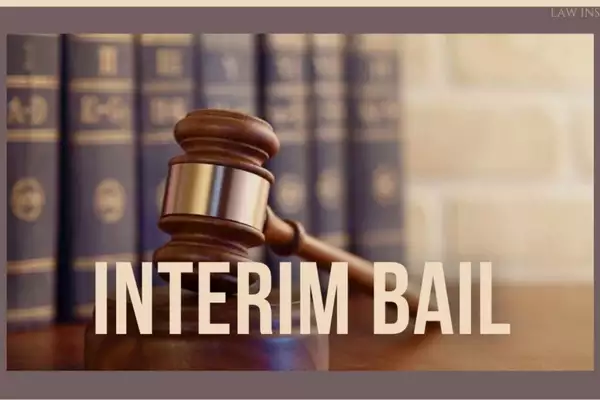Court (HC) has recently observed that a person in not entitled to anticipatory bail when he or she is summoned by a trial court for additional accusation in a case.

About the Anticipatory Bail:
- Anticipatory bail is a legal provision in the Indian criminal justice system that allows an individual to seek bail in anticipation of arrest and aimed at protecting individuals from arbitrary arrest and detention.
- Article 21 of the Indian Constitution grants the right to life and personal liberty to every individual, which includes the entitlement to seek bail when detained by any law enforcement agency.
- The primary objective of anticipatory bail is to prevent the harassment and arrest of innocent individuals by providing them with a legal remedy against false or frivolous charges.
- Anticipatory bail is generally granted for a specific period, after which the person must apply for regular bail if required.
Conditions:
- The person must apprehendarrest in connection with a non-bailable offense.
- Non-bailable offences are serious in nature and are punishable with imprisonment for 3 years or more.
- A person accused of a non-bailable offence cannot claim bail as a matter of right and can only be given bail when granted by the competent court.
Role of court in Anticipatory Bail:
- The court may impose certain conditions while granting anticipatory bail, such as restrictions on travel, cooperation with the investigation, or attendance at the police station.
- The court has discretionary powers to grant or deny anticipatory bail based on the facts and circumstances of each case.
- The court considers factors like the gravity of the offense, the applicant’s criminal record, and the likelihood of the person fleeing from justice.
- In Sibbia v. State of Punjab case (1980), Supreme Court have clarified the principles and conditions for granting anticipatory bail.
About the Interim bail:
- The Interim bail serves as a short-duration relief before the final disposal of regular or anticipatory bail applications.
- It is vital when documents like charge sheets are required for judicious decision–making, but their acquisition takes time.
- A chargesheet is the final report prepared by a police officer or investigative agency after completing their investigation of a case.
- It allows the accused to avoid jail until the court receives necessary documents for a final decision.
- It can be extended under special circumstances, to safeguard an accused’s reputation.
Conditions imposed while granting Interim Bail:
- Restrictions on direct or indirect contact with witnesses.
- Obligation to appear for police interrogation.
- Prohibition on leaving the country or court jurisdiction without court permission.
- Marriage and the death of near ones are considered special grounds for granting interim bail.
- In Nikesh Tarachand Shah v. Union of India, Supreme Court have stated that interim bail is not an entitlement or matter of right for prisoners.
Interim bail vs Regular Bail:
- Regular bail is sought after arrest, whereas interim bail is issued during the processing of anticipatory or regular bail applications.
- Interim bail is akin to temporary relief provided until the final adjudication on bail applications.
Other types of Bail:
- Regular Bail: A court can order the release of a person in custody on suspicion of committing an offense.
- Default Bail: If the accused can demonstrate that the required 60 or 90 days have passed since their arrest without any chargesheet or complaint being filed.
- Medical Bail: Granted to individuals based solely on medical grounds.
Ref: Source
| UPSC IAS Preparation Resources | |
| Current Affairs Analysis | Topperspedia |
| GS Shots | Simply Explained |
| Daily Flash Cards | Daily Quiz |



